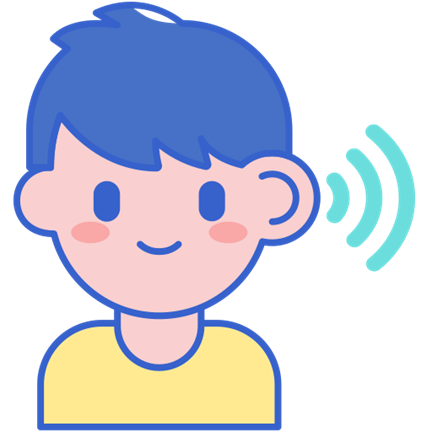Hearing and Sight
Click a link for more information: Discussion Questions Sensory Stimulation Activities
Hearing

Regular hearing checks are important. If a person living with hearing loss is in need of hearing aids, they can purchase them privately, or they are available through the NHS if a person is eligible. Being able to hear and correctly using hearing aids can make living with dementia a little easier. Sound is clear and less misheard, noises are less startling, a person is more engaged and standing balance can also be ensured through regular check up to help reduce the risk of falls.
When communicating with a person who has reduced hearing:
- try to attract their attention before speaking to them
- touch them on the arm to indicate where you are
- make sure you are facing them
- speak slowly and clearly.
- make sure there are no distracting noise (e.g. tv, radio)
- keep questions simple, one at time
If the person uses a hearing aid, make sure it is switched on and working properly. As dementia progresses, hearing aids may become too difficult for people to manage themselves and may simply add to the person's confusion.
Sight

People living with both dementia and sight loss are likely to experience more disorientation, greater problems with mobility and an increased risk of falls. They are also likely to have more difficulties with communication, understanding and learning new tasks, loss of activities and increased social isolation. Living with both conditions can also make it harder to use some of the coping strategies and techniques that can help people with communication or memory problems, such as visual prompts or notes. However, there are still lots of things that can help someone living with both sight loss and dementia
- Good eye care. Having annual eye tests and making sure glasses are current, clean and correct.
- Making changes to the person’s environment, such as improving lighting, using contrasting colours, keeping areas familiar and clutter free.
- Improving communication – for example, getting the person’s attention before speaking to them, introducing yourself, or letting them know what is happening (eg ‘I’m leaving the room now’).
- Technology and equipment, such as automatic lights or audio labels
- Seeking support from professionals, such as sensory impairment workers or occupational therapists.
- Focusing on what the person can do, and developing strategies based on what the person is familiar with.
People living with dementia, over the age of 60 years are eligible for free home visiting eye tests.